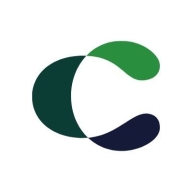

Contrast Security Assess and Apiiro are key players in the IT security domain. Contrast Security Assess is often favored for its pricing and customer service, while Apiiro stands out for its advanced features.
Features: Contrast Security Assess is known for its seamless integration capabilities, precise detection accuracy, and granular security assessment tools. Apiiro offers comprehensive risk management features, exceptional visibility across the software development lifecycle, and actionable insights that provide a competitive advantage.
Room for Improvement: Contrast Security Assess could benefit from enhanced reporting functionalities, more frequent updates, and improvements in its user interface. Apiiro is often critiqued for its complexity, steep learning curve, and need for simplification of its user interface to ease navigation.
Ease of Deployment and Customer Service: Contrast Security Assess provides a straightforward deployment process paired with responsive customer support, facilitating an easier setup. Apiiro's deployment is more complex, often requiring additional resources, but its customer service offers valuable guidance to help manage these challenges over time.
Pricing and ROI: Contrast Security Assess comes with competitive pricing, and users report excellent ROI due to its cost efficiency and effectiveness. Apiiro, with higher upfront costs, provides extensive features that justify the expenditure, resulting in significant ROI in the long term given its focus on innovation and comprehensive security improvements.
| Product | Market Share (%) |
|---|---|
| Apiiro | 0.8% |
| Contrast Security Assess | 0.8% |
| Other | 98.4% |

| Company Size | Count |
|---|---|
| Small Business | 2 |
| Midsize Enterprise | 3 |
| Large Enterprise | 6 |
Apiiro is the leader in application security posture management (ASPM), unifying risk visibility, prioritization, and remediation with deep code analysis and runtime context.
Companies like Morgan Stanley, SoFi, Rakuten, and Navan leverage Apiiro's ASPM to...
Get complete application and risk visibility: Apiiro takes a deep, code-based approach to ASPM. Its Cloud Application Security Platform analyzes source code and pulls in runtime context to build a continuous, graph-based inventory of application and software supply chain components.
Prioritize risks with code-to-runtime context: With its proprietary Risk Graph™️, Apiiro contextualizes security alerts from third-party tools and native security solutions based on the likelihood and impact of risk to uniquely minimize alert backlogs and triage time by 95%.
Fix and prevent risks that matter—faster: By tying risks to code owners, providing LLM-enriched remediation guidance, and embedding risk-based guardrails directly into developer tools and workflows, Apiiro improves remediation times (MTTR) by up to 85%.
Apiiro's native security solutions include API security testing in code, secrets detection and validation, software bill of materials (SBOM) generation, sensitive data exposure prevention, software composition analysis (SCA), and CI/CD and SCM security.
Contrast Security is the world’s leading provider of security technology that enables software applications to protect themselves against cyberattacks, heralding the new era of self-protecting software. Contrast's patented deep security instrumentation is the breakthrough technology that enables highly accurate assessment and always-on protection of an entire application portfolio, without disruptive scanning or expensive security experts. Only Contrast has sensors that work actively inside applications to uncover vulnerabilities, prevent data breaches, and secure the entire enterprise from development, to operations, to production.
We monitor all Static Application Security Testing (SAST) reviews to prevent fraudulent reviews and keep review quality high. We do not post reviews by company employees or direct competitors. We validate each review for authenticity via cross-reference with LinkedIn, and personal follow-up with the reviewer when necessary.